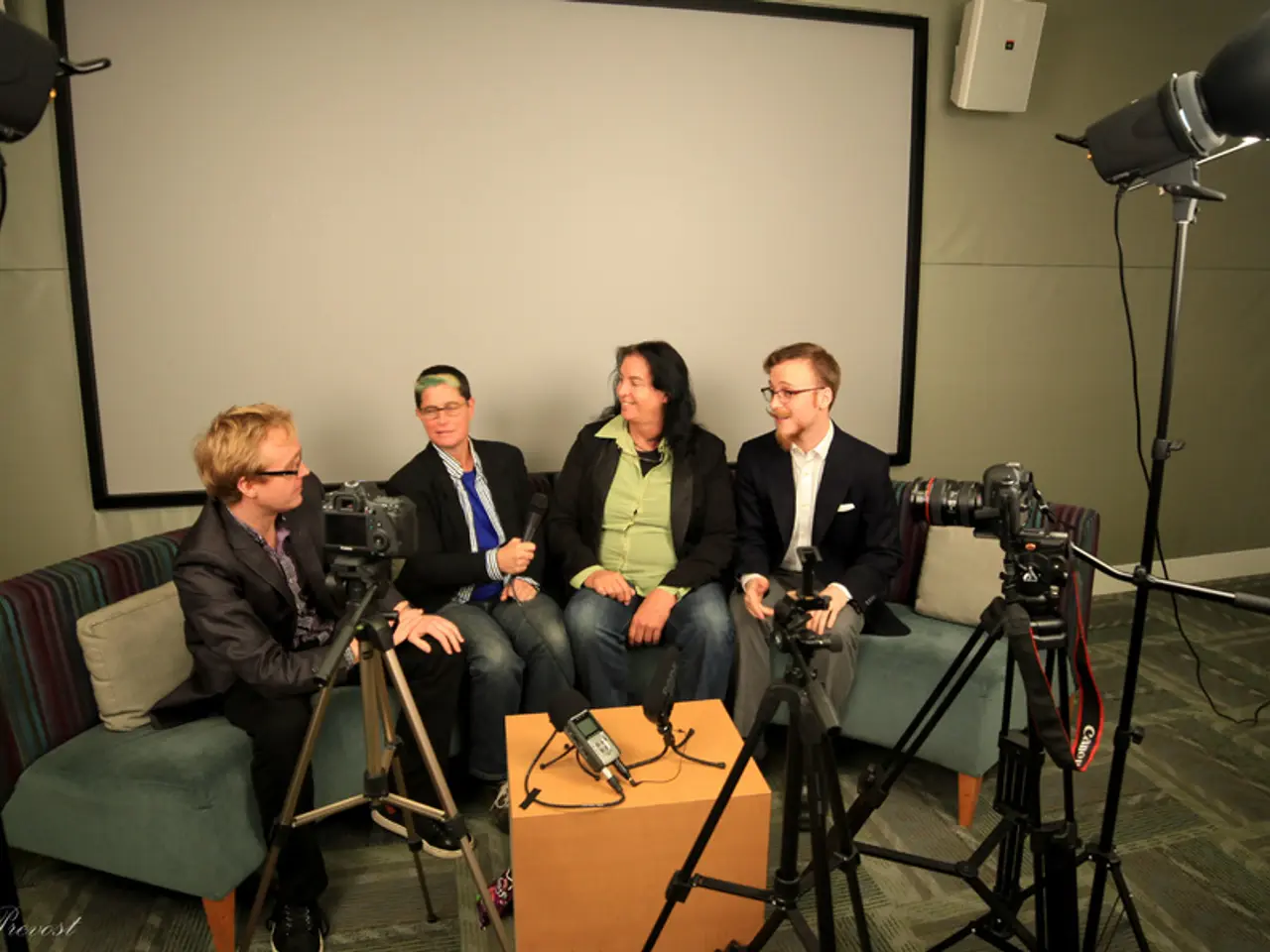The Impact of Artificial Intelligence on Reshaping Job Applicant Interaction
In the ever-evolving world of employment, artificial intelligence (AI) is making significant strides in transforming the candidate job application process. The goal is to create an experience that reflects the value and contributions of candidates, uplifting rather than discouraging.
AI enhances hiring in numerous ways, primarily by automating and accelerating time-consuming tasks. This includes resume screening, enabling faster and more accurate candidate matching, and enhancing candidate engagement through real-time communication. By doing so, AI reduces bias, fostering fairness and diversity in the hiring process.
One of the key advantages of AI is its ability to automate the screening process, analysing thousands of CVs quickly. This not only shortens the time-to-hire but also reduces drop-offs due to slow processes. AI also learns from past successful hires to identify traits and skill combinations predictive of success, helping include career switchers and diverse backgrounds.
Anonymized resume screening is another significant advantage. By redacting names, gender, age, universities, and locations, AI removes affinity and background bias, focusing solely on qualifications. Uniform, weighted criteria ensure consistent assessment of all applicants across experience, certifications, and outcomes, minimising subjective bias.
AI platforms also analyse hiring patterns over time to detect and surface anomalies indicative of bias, giving HR leaders tools to intervene and improve fairness. Enhanced candidate engagement is achieved through AI chatbots and virtual assistants, providing timely communication and helping candidates through the application process.
While AI optimises fairness and efficiency, human judgment remains crucial for culture fit and final decisions. AI serves as a tool to reduce errors and bias, not replace recruiters. The future of candidate experience is AI-driven, promising a more enjoyable, personalised, and respectful job-seeking process.
The ongoing technological advancements in recruitment are aimed at improving the overall candidate experience. AI can provide timely updates and communication to candidates throughout the hiring process, improving the overall candidate experience. The use of AI in recruitment can lead to a more equitable and fair hiring process, resulting in a significant increase in the diversity of applicants invited for interviews.
A leading tech firm has showcased AI tools promoting outreach to diverse candidates and minimising biases during the screening phase. AI-driven systems can pre-fill information, assess various resume formats, and efficiently identify the best-fit candidates. The future of recruitment lies in the hands of AI, aiming to empower every candidate and create a fulfilling job-seeking experience. However, effectiveness depends on algorithmic transparency, regular auditing, and clean data to mitigate risks of AI bias itself.
- Artificial Intelligence (AI) is not just optimizing the recruitment process, but it's also aiming to enhance the candidate experience, providing timely updates and communication throughout the hiring process.
- The increasing advancements in AI technology have led to the development of smart systems that can pre-fill information, assess various resume formats, and efficiently identify the best-fit candidates.
- By automating the screening process, AI systems can analyze thousands of CVs quickly, shortening the time-to-hire and reducing drop-offs due to slow processes.
- AI platforms utilize algorithms to learn from past successful hires, helping identify traits and skill combinations predictive of success, thereby potentially including career switchers and diverse backgrounds.
- Anonymous resume screening, which removes affinity and background bias, is another significant advantage of AI technology. It ensures consistent assessment of all applicants across experience, certifications, and outcomes, minimizing subjective bias.




